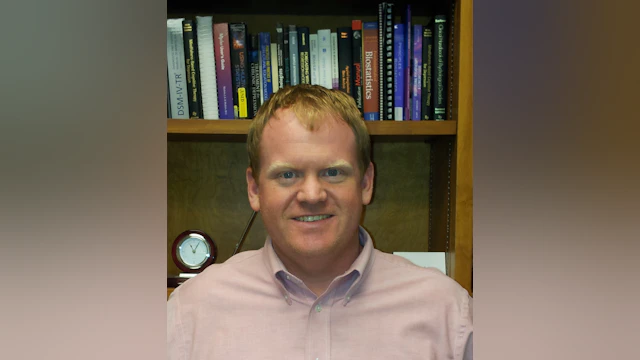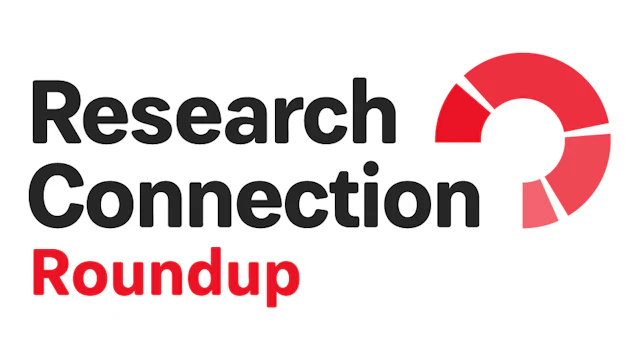The Research Roundup is a regular update of recently published findings in suicide prevention research. AFSP-funded studies included in this roundup examined how…
- Suicide prevention interventions can be tailored to Crisis Stabilization Centers
- Families of people with substance use disorders may help prevent suicide and overdose
- A myriad of factors contribute to the lack of research on suicide in Latin America, and
- Cognitive strategies to offset intense emotions can make the leap from the lab to real life

Researcher: Jennifer Lockman, PhD
Institution: Centerstone Research Institute
Grant Type: 2021 Young Investigator Grant – $89,868
Grant Title: THRIVE: Pilot Study of a Brief, Recovery-Focused Intervention for Crisis Stabilization Centers
Suicide prevention efforts are increasingly looking to Crisis Stabilization Centers (CSCs) as vital components of the mental health crisis response system. CSCs are short-term, community-based facilities that operate 24/7, accept walk-ins, and offer care regardless of ability to pay. They aim to divert individuals in crisis from emergency departments or jail by providing a safer, more supportive alternative staffed by interdisciplinary teams. Despite their growing role, there remains a lack of brief, recovery-oriented interventions designed specifically for the unique environment and workflow of CSCs. Most existing therapies are too lengthy or narrowly focused on immediate safety, leaving a gap in services that address both short-term stabilization and longer-term recovery, especially among populations experiencing housing instability, unemployment, and prior suicide attempts.
With support from AFSP, Dr. Jennifer Lockman and her team looked at how practical it would be to deliver THRIVE-C, a 60-minute, recovery-focused therapy, within CSCs, and whether participants found it helpful and engaging. The intervention includes four phases: building a therapeutic alliance, narrating the suicide crisis, exploring the broader life story to make meaning of suicidal experiences, and creating a “Meaningful Living Plan.” Dr. Lockman gathered feedback from three groups: CSC administrators and leaders across the U.S. (n = 15), study therapists employed at a Nashville-based CSC (n = 5), and CSC guests receiving care at that same facility (n = 54), many of whom were experiencing acute suicidal thoughts and behaviors and socioeconomic adversity. Across all groups, THRIVE-C was rated highly for feasibility, satisfaction, and fit for the setting. Ninety-four percent of guests completed all phases of the session, and most expressed strong intentions to continue treatment or engage in recovery-oriented behaviors after discharge. Additionally, no safety issues emerged. These findings support further testing of THRIVE-C and suggest that even a single-session intervention, when focused on meaning, connection, and empowerment, can offer hope and direction for individuals in crisis.
Citation: Lockman, J. D., Pisani, A. R., Angerer, B. P., Graham, A. C., Henry, J., & Lloyd, F. (2025). THRIVE: Feasibility, Acceptability, and Social Validity of a Brief Recovery-Focused Intervention in Crisis Stabilization Centers. Suicide & life-threatening behavior, 55(3), e70021. https://doi.org/10.1111/sltb.70021

Researcher: Phillip Smith, PhD
Institution: University of South Alabama
Grant Type: 2011 Young Investigator Grant – $81,990
Grant Title: The Acquired Capability for Suicide: A Mechanism Underlying the Gender Disparity in Suicide Rates
Supportive family members are often left to navigate the emotional and practical challenges of a loved one’s problems with substance use, despite being a vital part of that person’s support system. They may carry the burden of care, face heightened stress, and witness moments of acute crisis (e.g., including suicide attempts and overdose) without adequate training or resources. Yet while substance use is strongly linked to both suicide and overdose risk, few formal programs exist to help families recognize or respond to these life-threatening situations. Many services focus either on addiction or suicide, rarely both. This leaves families patching together care or being excluded entirely from prevention efforts. Addressing this gap, particularly in underserved or rural communities, is essential to reduce preventable deaths and support the well-being of families affected by a loved one’s substance use and suicidal thoughts and behaviors.
To address this, Dr. Phillip Smith conducted a review of the research and examined 86 studies covering 76 distinct programs for families of individuals with problematic substance use. The majority aimed to reduce caregiver stress or improve treatment engagement but rarely addressed suicide or overdose risk directly with only one program targeting suicide, and just two focused on overdose. Programs were categorized as either involving the individual with substance use or focusing solely on the family. The most commonly studied model, CRAFT, showed promise in supporting families but lacked integration of suicide and overdose prevention. Moreover, many studies excluded participants at risk of suicide entirely. The findings reveal a striking lack of comprehensive, evidence-based programming that helps families to manage the most severe consequences of substance use. To conclude his review, Dr. Smith recommended future research that could conduct an environmental scan to identify community-level programs that are already in practice and investment in developing interventions that include family in preventing suicide and overdose.
Citation: Hutchison, M., Pisani, A. R., Cuellar, V., Donovan, S., Scade, P. R., & Conner, K. R. (2025). A Scoping Review of Programs to Support Families and Protect the Lives of Persons with Problematic Substance Use: Focus on Suicide and Overdose Prevention. Substance use & misuse, 1–12. Advance online publication. https://doi.org/10.1080/10826084.2025.2508748

Researcher: Brenda Cabrera-Mendoza, MD, PhD
Institution: Yale University School of Medicine
Grant Type: 2022 Postdoctoral Fellowship – $132,900
Grant Title: Suicide-associated Loci Regulating Molecular Traits and Their Interaction With Environmental Factors
Suicide is a growing public health concern in Latin America, where the suicide rate increased by 6% between 2010 and 2016, opposite the global trend of decline. Despite comprising a large portion of the global population, Latin American countries remain underrepresented in suicide research. Cultural stigma, systemic underfunding of mental health services, and wide disparities in access to care all contribute to significant unmet needs. The region’s suicide risk is shaped by unique contributors which include entrenched gender norms, high alcohol use, social unrest, migration, and historical marginalization of Indigenous and Afro-Latin American populations. Religious and familial structures may be both protective and stigmatizing, especially when suicidal behavior conflicts with dominant cultural values. Additionally, a persistent lack of local data makes it difficult to identify high-risk groups or build tailored prevention efforts.
In order to assess the landscape of suicide contributors in Latin America, Dr. Brenda Cabrera-Mendoza synthesized current knowledge of suicide risk in these countries and highlighted urgent priorities for research, policy, and clinical practice. In her commentary, Dr. Cabrera-Mendoza emphasized the need to invest in both region-specific data collection and inclusive research that reflects Latin America’s diverse genetic ancestry and social realities. Mental health systems across the region are chronically underfunded, typically receiving only a fraction of recommended resources, and services are often inaccessible to those who need them most. Structural barriers, such as uneven distribution of providers and concentration of care in the private sector, leave large segments of the population without support. Dr. Cabrera-Mendoza concluded that by advancing culturally adapted prevention strategies, improving the reach and quality of mental health services, and integrating biological and social determinants of health into future studies, the Latin American region has an opportunity to reverse rising suicide trends and build more equitable systems of care.
Citation: Foo, Cabrera-Mendoza, B., Fries, G. R., & Polimanti, R. (2025). The landscape of suicide risk factors in Latin America. Psychiatry Research, 351, 116597. https://doi.org/10.1016/j.psychres.2025.116597

Researcher: Sarah Herzog, PhD
Institution: Columbia University
Grant Type: 2022 Postdoctoral Fellowship – $132,900
Grant Title: A Multi-modal Integration of Neurobiological and Ecological Measures of Emotion Regulation in Suicidal Individuals
People with depression can struggle to manage their emotions during stressful moments, and this can increase their risk for suicidal thoughts. One coping strategy known to help is cognitive reappraisal, which can be thought of as rethinking a situation to change its emotional impact. While this skill has been linked to lower distress and lower suicide risk, most studies test it in lab settings where people are told exactly when and how to regulate their emotions. Many times, that doesn’t reflect how people actually respond in real life, where stress often comes without warning and emotion regulation happens (or doesn’t) on the fly. To better understand how emotion regulation plays out day to day, especially among people with major depressive disorder (MDD), efforts to look at not just whether someone can use reappraisal when asked, but whether they tend to use it naturally, and how that relates to real-world stress and suicide risk are needed.
With her AFSP funds, Dr. Sarah Herzog examined both the capacity and tendency to engage in cognitive reappraisal among 82 unmedicated adults with MDD. Using a machine learning–based “neural signature” developed from brain imaging data, Dr. Herzog and her team measured reappraisal-related brain activity while participants recalled upsetting personal memories in three ways: freely (unstructured), while deliberately distancing (reappraisal), and while emotionally immersing in the stressful memory. After the scan, participants reported their stress, mood, and suicidal thoughts multiple times a day for one week using real-time phone surveys. Interestingly, people who showed stronger reappraisal-related brain activity during unstructured recall (i.e., a proxy for their spontaneous tendency to regulate) were more likely to experience spikes in suicidal thoughts after daily stress. In contrast, those who showed stronger reappraisal activity when directed to distance had fewer increases in negative mood. These findings suggest that while the ability to reappraise when directed may help protect against emotional distress, a tendency to spontaneously engage in reappraisal, even during low-stakes reflection, may actually reflect underlying emotional vulnerability that could be addressed with treatment.
Citation: Herzog, S., Schneck, N., Galfalvy, H., Hwei-Choo, T., Schmidt, M., Michel, C. A., Sublette, M. E., Burke, A., Ochsner, K., Mann, J. J., Oquendo, M. A., & Stanley, B. H. (2025). A Neural Signature for Reappraisal as an Emotion Regulation Strategy: Relationship to Stress-Related Suicidal Ideation and Negative Affect in Major Depression. Biological psychiatry. Cognitive neuroscience and neuroimaging, 10(1), 94–102. https://doi.org/10.1016/j.bpsc.2024.08.011
Learn more about the AFSP research grants featured in this monthly roundup, as well as others, here.
